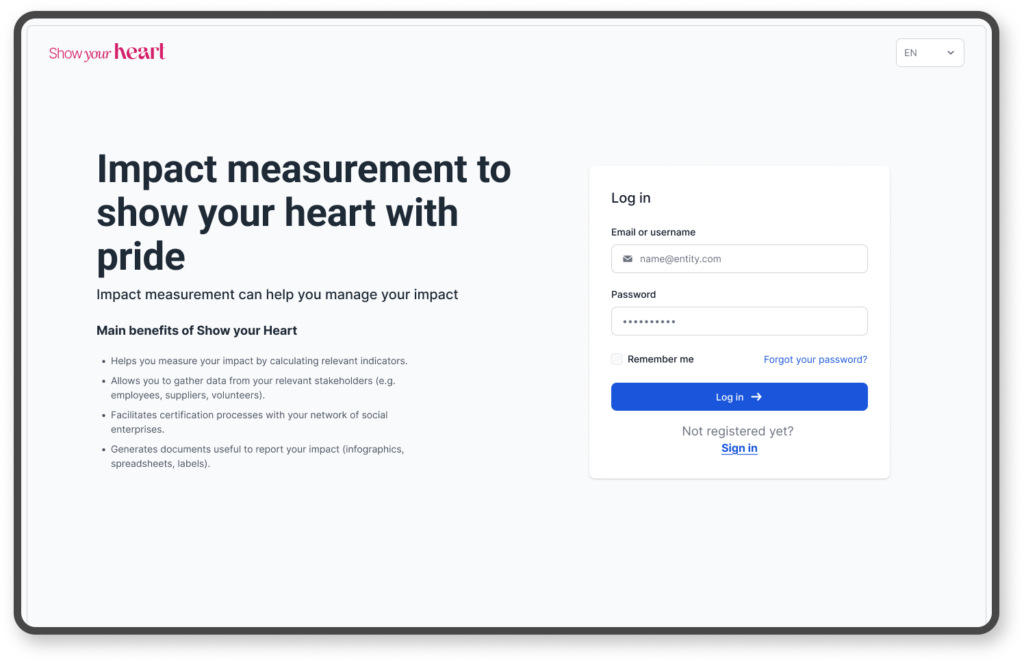
We are currently conducting pilots with 5 social enterprises in the Netherlands. The project is funded by the Dutch Ministry of Economic Affairs (Ministerie van Economische Zaken, see page Stakeholders and projects).
Here you can consult the status of the pilots and some of the ongoing results.
Social enterprises
The following five social enterprises take part in the pilots.

BikeFlip considers that upcycling children’s bicycles is necessary, because on average children only use a bicycle for one year: by then they have grown too big and the bicycle is too small. Then the bicycle is often left to rust somewhere. In the Netherlands alone, there are millions of bicycles in sheds and municipal depots. We think it’s a shame. That’s why we came up with a simple but innovative idea: a subscription to a circular children’s bicycle with an exchange and repair service at home. A lease bicycle for children, but sustainable. That’s BikeFlip.

Buurman is a circular do-it-yourself store and educational woodworking shop. Our motto: just do it. In Rotterdam, Utrecht, Antwerp, Nijmegen, Arnhem and Amsterdam, Buurman puts the circular economy into practice. And at the same time we are building local networks of upcycle partners. In this way, we are making reuse the new normal together. Buurman wants to grow to 10 locations in 2030. The basis for this is a social franchise model where impact is more important than profit. Read more about our organisation here.

CRE8 is a collaboration between a foundation and a company. Together, they offer young people an inspiring business working environment and guides them in learning to work with modern equipment, aim at contributing to their career opportunities and to society. We carry out activities around digital manufacturing on behalf of business customers and for the purpose of manufacturing and selling self-designed consumer products. Customers can contact us for advice and designs regarding prototyping and production.

GUZO Coffee‘s mission is to create jobs in Ethiopia and ensure that everything we do also helps to make the country’s economy healthier. Where green coffee beans are usually exported – which then still have to be processed – we choose to keep the entire chain in Ethiopia and add the value in this country of origin. At GUZO we process coffee in Ethiopia into a packaged end product. Ready to go to you, at a reasonable price. it does lead to a much fairer distribution of the profits. In addition, we are convinced that our approach leads to the most sustainable coffee that you can buy in the Netherlands.

MidWest is a social enterprise, a neighborhood enterprise , founded in 2012. Together with the neighborhood, we turned an empty monumental school building in Amsterdam West into a lively public place; a community center in the city. We make local social impact. We do this by giving cultural and social initiatives and activities an affordable and accessible place . We invest the income from the rental of rooms and workplaces in the programming and talent development of the initiators, our volunteers, team and interns. Earning money is not a goal for us but a means to make our neighborhood liveable, social, sweet and green.
These five social enterprises are all members of Social Enterprise NL
Social Enterprise NL is the Dutch national network for social enterprises, enterprises whose primary goal is to create social added value (impact). These include labour participation, environmental solutions and poverty alleviation. We support our over 450 inspiring members in their growth and professionalisation by organising master classes and programs in a variety of areas. We are also committed to improving the position of social enterprises in society by lobbying governments, both local and national, and capital providers so that they too will recognise the value of social entrepreneurship more and more social impact can be made.
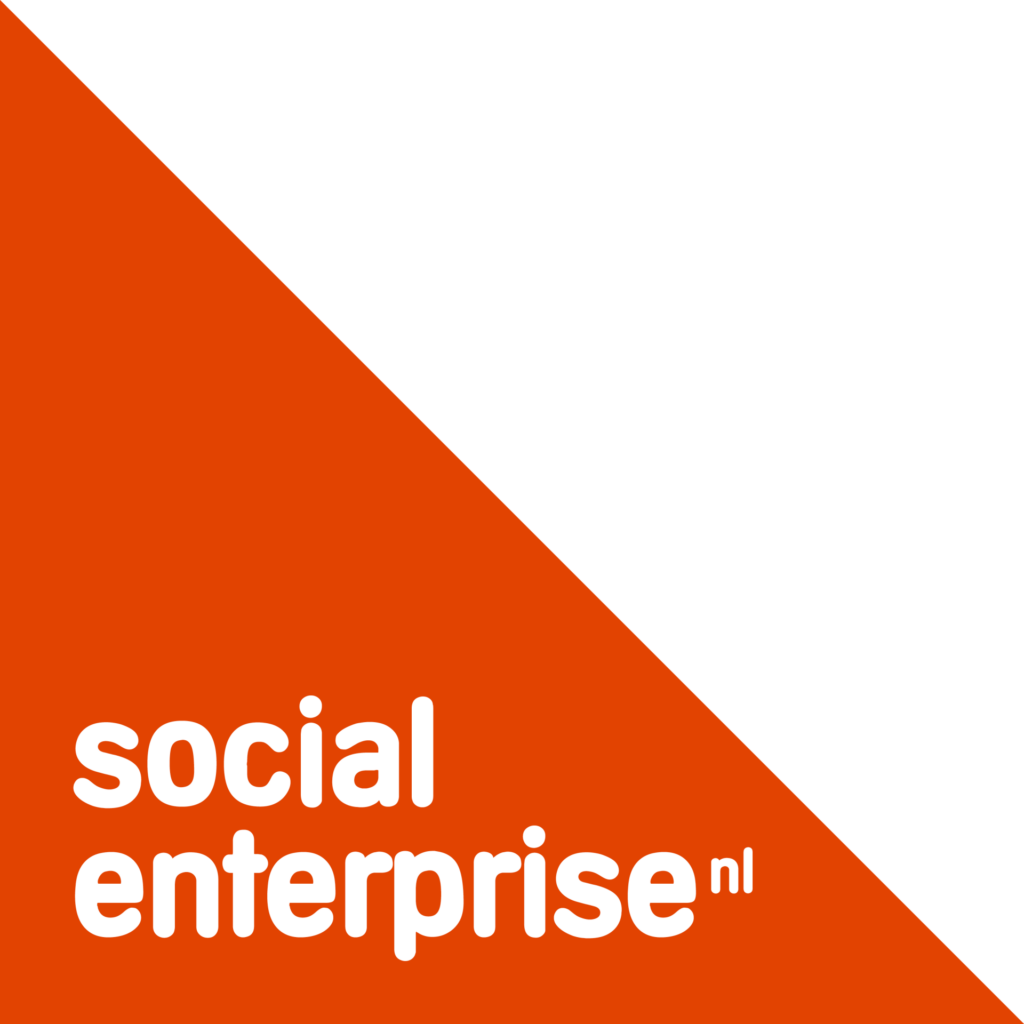
Core set of indicators
We have defined a first proposal of the core set of indicators to be reported by all social enterprises participating in the pilots. This set of indicators is mainly inspired by the REAS core set of indicators, used every year to produce aggregated reports such as the ones showed in the Resources page.
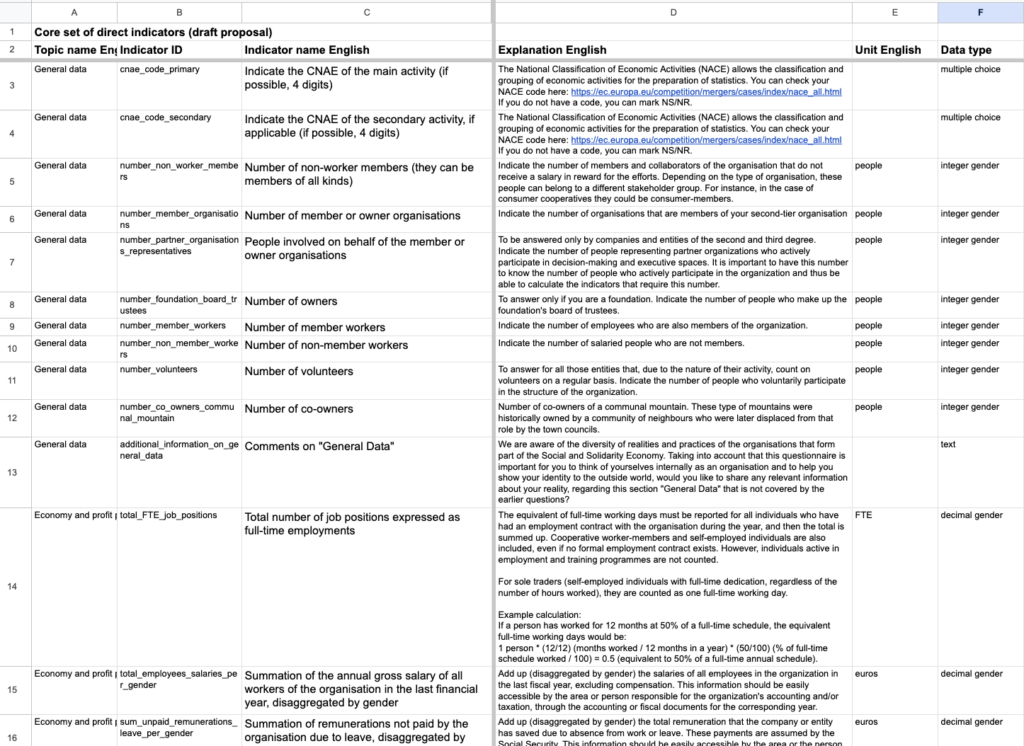
Find here the set of direct indicators; i.e. those whose value is provided by representatives of the social enterprise.
Find here the set of indirect indicators; i.e. those that can be used for reporting purposes (they have a formula that is calculated based on the values of the direct indicators)
Team
The pilots are run by a multidisciplinary team.
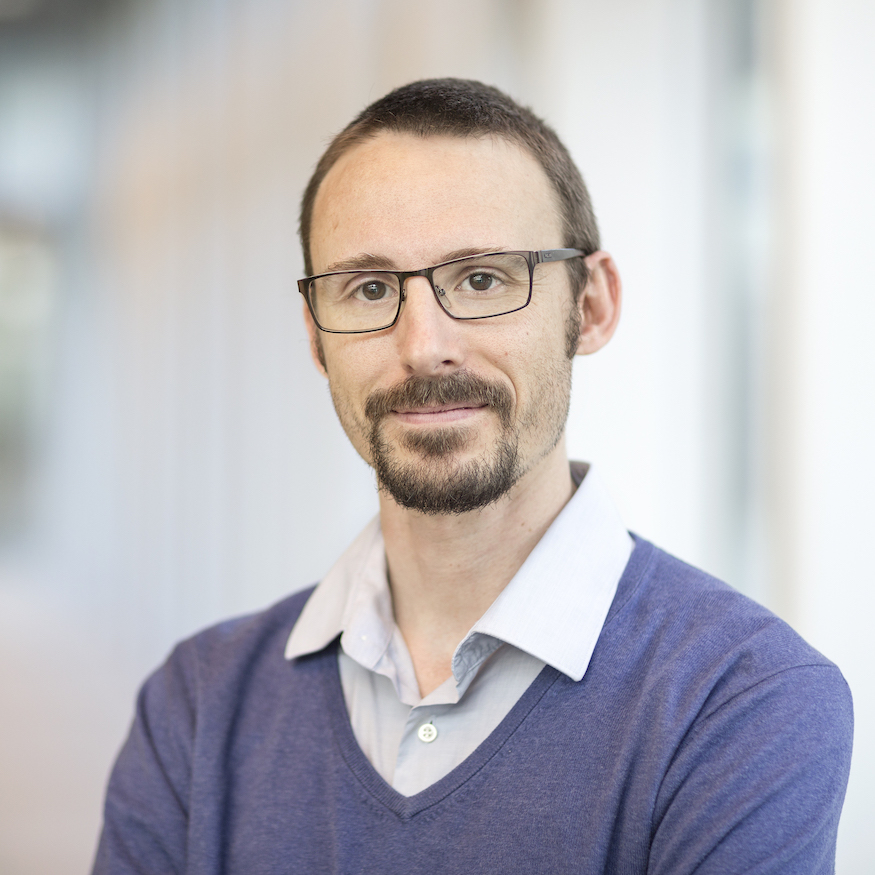
Sergio España. Assistant Professor on Software for Organisational Responsibility. Information and Computing Sciences Department; Faculty of Science; Utrecht University. He is product manager of openESEA / Show your Heart and has published several articles on this technology (see page Resources). He is member of the Social Balance Committee of XES, the Catalan Network of Solidarity Economy (see page Stakeholders and projects). He has investigated impact measurement methods from various perspectives. For instance, the wide array of available ESG accounting methods and the motivations by organisations to adopt them, the process of selecting an impact management method, assisting enterprises on defining their own impact measurement method, the possible use of more than one ESG accounting method combinedly, the use of impact measurement data for strategic management.
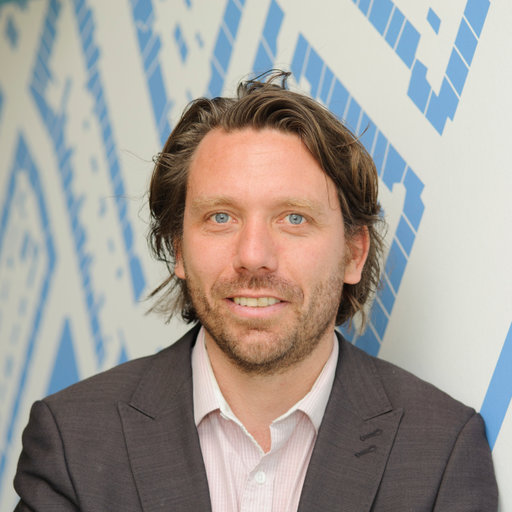
Niels Bosma. Full Professor on Social Entrepreneurship. Utrecht University School of Economics; Faculty of Law, Economics and Governance; Utrecht University. Co-founder and Chair of the Utrecht University Social Entrepreneurship Initiative. He has contributed extensively to research on social entrepreneurship and impact measurement, with a focus on entrepreneurial ecosystems and societal outcomes. His work addresses the roles of institutions and policy-making on social entrepreneurship, the national and regional differences in entrepreneurial attitude and activity, and the factors of social enterprise ecosystems that foster growth and help social enterprises thrive. He has also developed frameworks for social enterprise impact measurement, co-authoring key reports on global social entrepreneurship trends highlighting the societal effects of entrepreneurship, such as the Global Entrepreneurship Monitor. These series of reports have had positive implications not only on entrepreneurship-related practice and policy-making, but also on research.

Xing Li. Post-doc researcher on Impact Management. Information and Computing Sciences Department; Faculty of Science; Utrecht University. She investigates social entrepreneurial activities at the individual, organisational, and national levels of analysis. Her work focuses on understanding the factors that lead to individual, regional, and national variance in social entrepreneurial activity and uncovering the social impact creation by social enterprises in local communities. She has conducted empirical research on social entrepreneurship in China and the United Kingdom. Her aim is to promote the development of social entrepreneurship to generate positive social impacts in society.
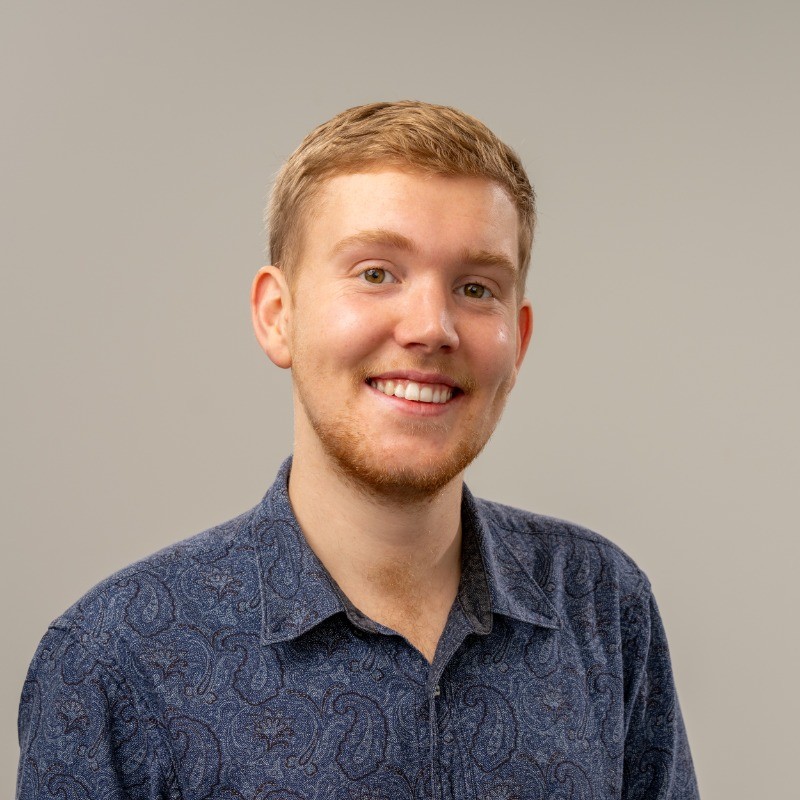
Arjan van Dorsselaer. PhD candidate researcher on Social Entrepreneurial Ecosystems. Utrecht University School of Economics and School of Governance; Faculty of Law, Economics and Governance; Utrecht University. He studies the elements of social entrepreneurial ecosystems and how these influence the various scaling strategies employed by social enterprises. For example, the role of bridging social capital on the impact growth of rural or community enterprises. Besides social impact scaling, he is also interested in rural (social) entrepreneurship. His research is part of the Scentiss research project, an initiative for Boosting Social and Community-driven Entrepreneurship for the Transition to an Inclusive and Sustainable Society (see Stakeholders and projects). He aims to strengthen social and collective entrepreneurship for the transition to an inclusive and sustainable society.

Karen Góngora. Consultant and independent researcher. After working for the Mexican Government as a policy advisor for social development, she moved to the Netherlands. She obtained a PhD from the University of Twente researching on methods to assess the effectiveness of policies aimed at supporting social entrepreneurship, including grant allocations. She contributes skills such as case-study research, data analysis, public policy analysis, and impact measurement.
